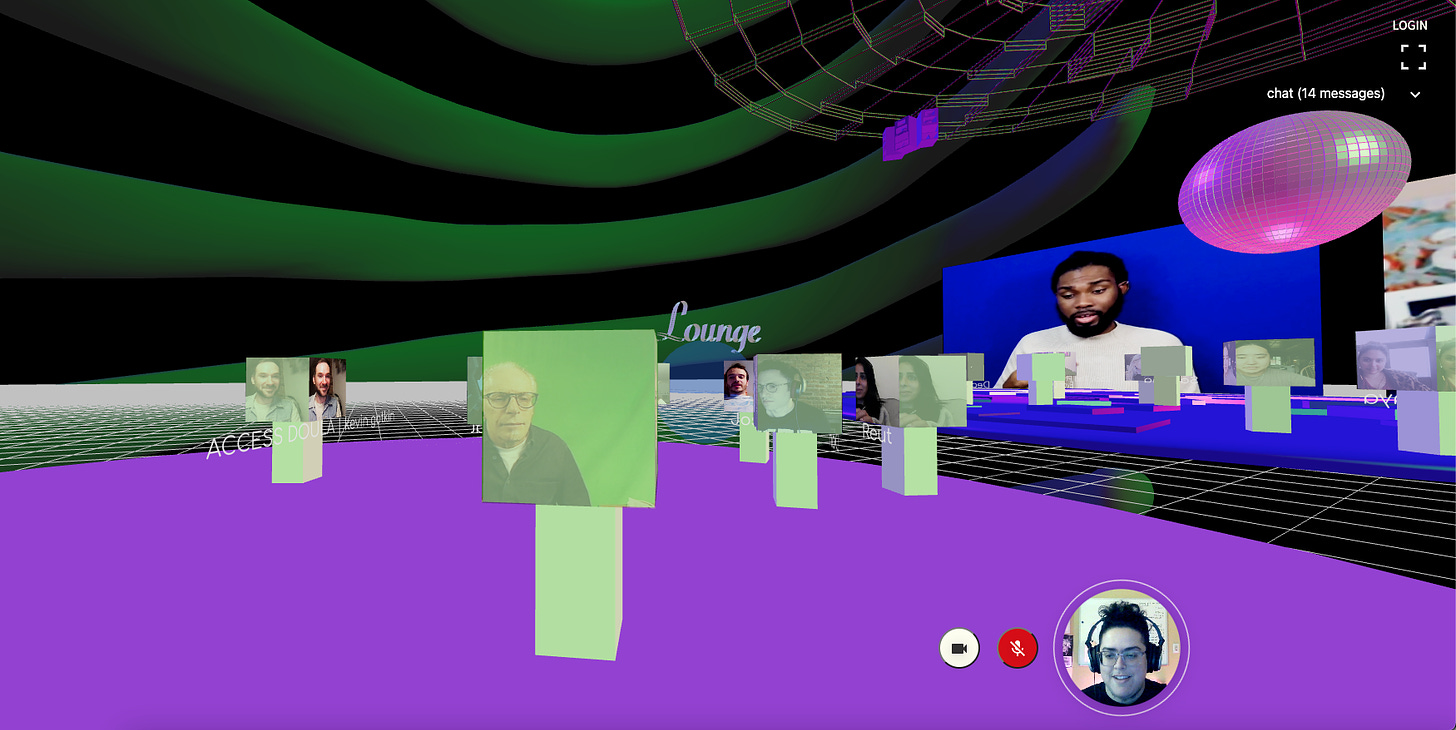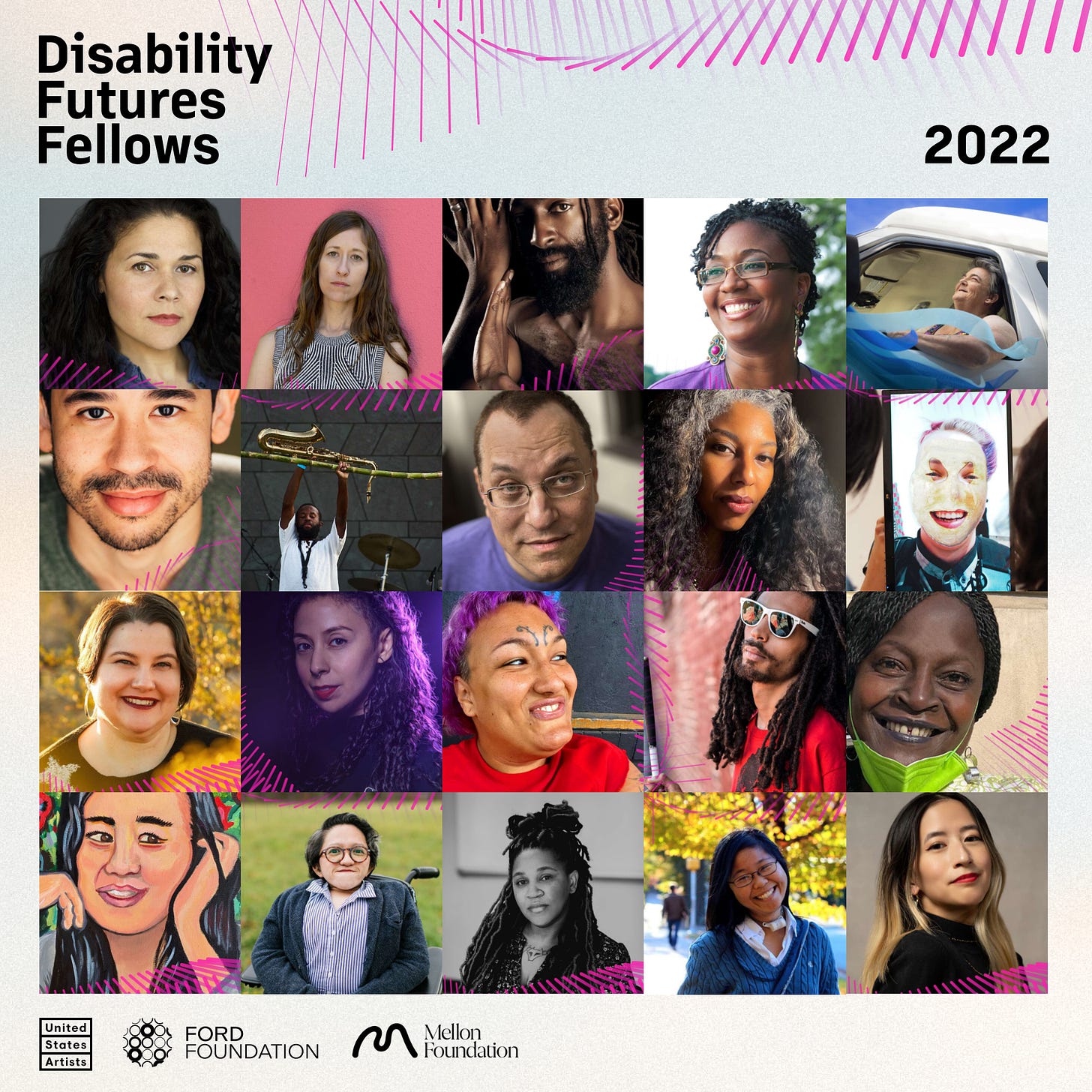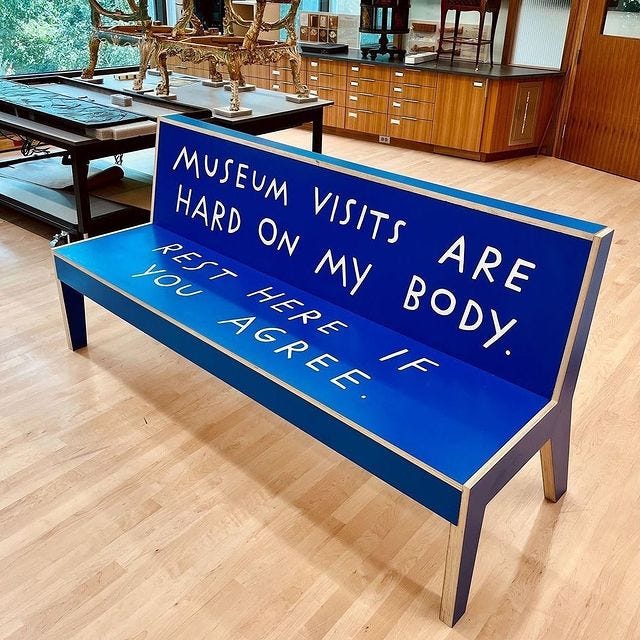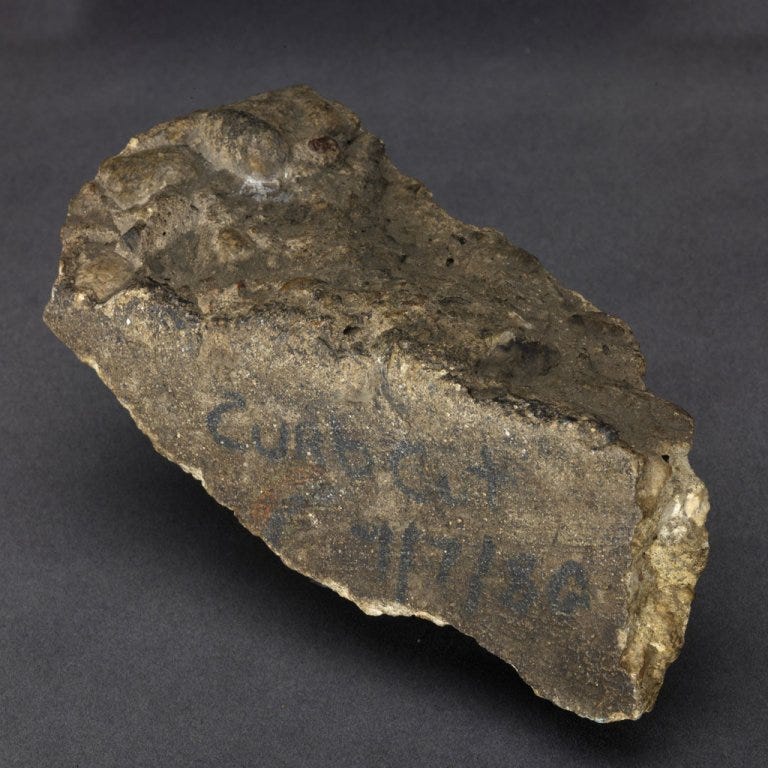Crip News v.43
NEWS
Disability Futures Fellows
The partnership between United States Artists and the Ford and Mellon Foundations has named 20 new fellows who will receive an unrestricted award of $50,000. The fellows are: Alexandria Wailes, Alison O’Daniel, Antoine Hunter, Purple Fire Crow, Camisha L. Jones, Corbett Joan O’Toole, Dickie Hearts, JJJJJerome Ellis, Reverend Joyce McDonald, Kenny Fries, Khadijah Queen, M.Eifler, Naomi Ortiz, Nasreen Alkhateeb, NEVE, QuestionATL, Sandie (Chun-sha) Yi, Sandy Ho, Tee Franklin, Wendy Lu, and Yo-Yo Lin.
Joni Mitchell at Newport Folk Festival
The legendary singer’s surprise performance is making the rounds. There are levels to the way disability appears here. Mitchell contracted polio when she was 9, which influenced her distinctive guitar technique. She became disabled again in 2015 after a brain aneurysm. Teaching herself to play guitar again in the last few years, she watched videos of herself as a younger artist. A disabled artist relying on an intrinsic ancestor of a differently disabled artist-self. It’s remarkable. We can celebrate this performance without the pathos about overcoming that the performance drew out among ableds.
But there’s so much more! One of the songs Mitchell performed was “Summertime,” whose lyrics were written by the disabled artist Dubose Heyward. These lyrics came from a mosaic of disability representations in Dubose’s co-authored novel Porgy (1925), which preceded the Gershwin musical adaptation where “Summertime” emerged. Disability scholar and icon Dr. Sue Schweik unpacks the way Dubose recasts his white disability experience and appropriation of the experience of a real-life man named Samuel Smalls into those of his Black disabled character. Oh, how much detail about white supremacy and disabled masculinity get missed when ideologies of ability crowd things out!
And then I think of Wynonna Judd in the background of the video, blotting the tears in her eyes. Did the lullaby in the song draw her into grief of her mother’s suicide in April, a day before the duo was to be inducted into the Country Music Hall of Fame? Aren’t disability aesthetics so much more ordinary, subtle, and ubiquitous than the effects of their more legibly political heft?
A special thanks to the always-rad comments on Sue Schweik’s Facebook page, where I learned much of this.
New Works

“and we were dancing: for and with and after Kevin Gotkin and Levani” by danilo machado was published in Art Papers. [smiling face holding back tears emoji!]
Shannon Finnegan’s "Do you want us here or not" (2020) was acquired by the Museum of Fine Arts, Boston for its “Please Be Seated” series, a program that has been commissioning museum seating since 1975. Image description: A bright blue bench with white text that says: “Museum visits are hard on my body. Rest here if you agree.” Photographed here in the MFA’s conservation lab with glimpses of beautiful and ornate furniture and objects in the background.
Unlimited U.K. announced that it is partnering with 17 organizations to grant £584,000 in commissions to disabled artists internationally. Expressions of interest will be accepted in October.
Chicago-based disabled artists Sandie Yi and Abla Gharid were featured on WGN9’s Daytime Chicago to discuss The Re-Wired Project, a new collective installation collaboration.
Stefana Fratila’s I want to leave this Earth behind, part 2/2 (2022), published in e-flux’s You Can’t Trust Music, Chapter 2: Sonic Boom, is speculative fiction about crips in space.
Them recently profiled 7 queer and trans creators with disabilities: Asha, Ben-Oni, Umber Ghuari, Karli Drew, Corin Parsons, D’Arcee Charington Neal, and Farrah Garland.
Howard Sherman’s op-ed in The Stage calls for theatre to unite for Deaf and disability visibility.
A feature in The New York Times explains the way ASL is changing with video technology and social media.
In The Baffler magazine, Dr. Laura Mauldin explores the manifold worlds of care hacking.
A new study from Nielsen reviewed 164,000 films and TV shows since 1918 and found only 4.2% of them had “significant disability themes or content.” [My Ph.D. in Media Studies compels me to add: Maybe! I wonder how they would code Joni Mitchell at the Newport Folk Festival?]
A mural created in response to a disabled woman being fined for parking in a disability parking spot at her own home in Cardiff, Wales has been taken down to protect it from vandalization.
Samoan artist Lusi Faiva testified in a Niu Sila/New Zealand Royal Commission’s abuse in care inquiry into medical, emotional, and cultural neglect in care institutions. “I would like to emphasise the six words I used at the start of my statement,” Faiva said, “freedom, choice, expression, routine, respect and affection.”
A review of the new Apple TV+ series Best Foot Forward in The New York Times highlights the way the show prioritizes disability on both sides of the camera.
The first printing of We Will Build a New Compass: Magic Moments of Seeding More Just Worlds by Chiara Francesca Galimberti sold out fast. The book “connects the experiences of teen parenthood, disability, queerness, and immigration to larger patterns of oppression and resistance.”
In Other News…
“I am a woman sitting at the table wearing a blue suit.” U.S. Vice President Kamala Harris offered a visual description at the top of her remarks during a roundtable with disability activists on the anniversary of the ADA last week. The responses have been profoundly ableist, so I won’t link to a single one.
The $369 billion U.S. federal climate and tax deal hatched entirely in secrecy with Sen. Joe Manchin will lower the cost of prescription medicines and extend health subsidies. Its passage is still not a sure bet.
The Biden administration announced plans to legalize psilocybin and MDMA therapies for PTSD and depression within 2 years. As yet, it lacks a plan to address widespread harm by leaders of the movement.
New reporting continues to demonstrate the health disparities that COVID is accelerating. COVID was far more lethal for Black and Hispanic people in rural areas last winter. Long COVID is more common among trans and bisexual people. Disabled health care workers remain vulnerable at work.
The power of the Minneapolis Sidewalk Repair Hunters Facebook group is reminiscent of Denver 1978. A new documentary tells the story of the direct action legends known as the “Gang of 19.”
Amazon is acquiring One Medical, a private equity-backed company that exemplifies the way Wall Street is taking over Medicare.
Dara Baldwin, Director of National Policy at the Center for Disability Rights, was a guest on The Brian Lehrer Show on WNYC to discuss the ongoing struggles for disability marriage equality.
CALLS
Rauschenberg Medical Emergency Grants provide one-time grants of up to $5,000 for recent unexpected medical, dental, and mental health emergencies to artists in financial need. The deadline for the current round is August 2nd. More here.
Alexa Dexa’s Bewitch Yourself project is a one-on-one virtual and interactive crip ritual for resourcing ourselves and sharing our resources by co-crafting a songspell that holds space for our infinite possibility. More info and scheduling for a free online session here.
Shutterstock is partnering with the Global Alliance for Disability in Media and Entertainment along with the World Institute on Disability to provide $5,000 and $10,000 production grants to artists with disabilities and their allies that will “increase and diversify portrayals of disabilities across a broad range of environments, relationships, and issues in our collection.” Apply by September 5th. More here.
The Center for Urban Pedagogy community-engaged design process brings together community organizations working on critical social justice issues and designers interested in learning about community engagement. Together, they create a visual guide that uses accessible language and innovative design to explain a complex policy, law, or system. More here.
The Sick and Disabled (SAD) Fair is seeking volunteer organisers. If you think you may be interested, email us at sadzcfair@gmail.com.
Heidi Latsky Dance is looking for an Executive Director. If you are interested please email amelia@heidilatskydance.org for more information.
There are several new funding opportunities for Australia-based disabled artists. More here.
Museum, Arts, and Culture (MAC) Access Consortium’s Supporting Transitions Project is seeking applications for the second cohort of its paid Self-Advocate Corps, who train disabled self-advocates, specifically those who identify as autistic, neurodivergent, or intellectually disabled, to use their experiences and skills to consult with cultural organizations to increase accessibility and representation. Information session on July 29th 12:45-1:15pm ET on Zoom. You can RSVP for the zoom link for the event by clicking here. A flyer with more information is available by clicking here.
EVENTS
Disabled Artist Support Programs: Budgeting
Kinetic Light is offering events to support disabled artists' know-how in U.S. arts worlds:
Organizational Strategies for Supporting Disabled Artists with Dom Chatterjee. Wednesday, August 3rd, 5:30-7pm ET. Register here.
Budgeting Jam Time. Tuesday, August 9th, 3-4pm ET. Register here.







